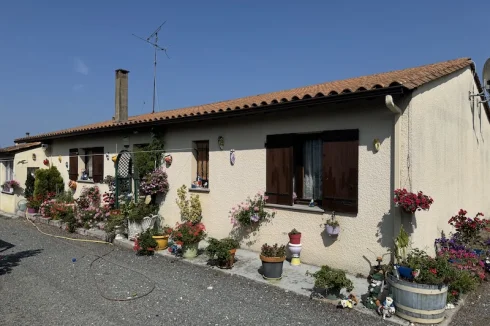European Health Insurance Card (EHIC)
Tuesday 04 August 2015
What are the rules and procedures on the use of the European Health Insurance Card for visitors to France?
Visitors to France from the European Economic Area (EEA) and Switzerland are entitled to receive unplanned health treatment through reciprocal agreements that are in operation.
In order to gain access to reimbursable treatment those visiting France as tourists are required to hold a European Health Insurance Card (EHIC).
Every member of the family who is travelling needs their own card.
In the case of those visiting from the UK the card is valid for up to five years.
To obtain a card it is probably easiest to make an On-Line Application. You will need your national insurance number.
There is no charge for the card, so do not be fooled by some websites into paying for it.
What Does it Cover?
The EHIC is not a passport to unlimited health care in France. The entitlement is to such health care as is 'necessary', on the assumption that, if necessary, you will receive continuing treatment when you return home.
To quote from the UK National Health Service guidance on use of the EHIC:
'Presenting the EHIC entitles you to treatment that may become necessary during your trip, but doesn't allow you to go abroad specifically to receive medical care. However, maternity care, renal dialysis and managing the symptoms of pre-existing or chronic conditions that arise while abroad are all covered by the EHIC.'
The definition of 'necessary health care' is similarly defined in European case law as 'benefits granted with a view to preventing an insured person from being forced to return home to their home member state and enabling them to continue their temporary stay in another member state under safe medical conditions.'
It will not cover the cost of services that are not part of the French state healthcare system, or the costs of being brought back to the UK.
Reimbursement Levels
The EHIC entitles you to reimbursement of health care on the same terms as residents of France.
Accordingly, if you need non-hospitalised medical treatment whilst you are in France as a visitor you will normally need to pay for the treatment at the point of delivery, including prescriptions.
You will be given a receipt (feuille de soins) for medical consultations, treatment and prescriptions, which you can later use to obtain a refund. Make sure you get this receipt or you will not be able to get reimbursement.
For routine medical treatment you will be entitled to reimbursement of around 70% of the costs. Prescriptions are often reimbursed at a lower level as are laboratory tests.
If you are admitted to hospital as in-patient the process and levels of reimbursement are a little different. Around 80% of your costs will be picked up, although in the most serious cases (eg cancer, heart condition, hospitalisation 30+ days) you will get 100% reimbursement.
That means for most treatments you will be expected to pay the residual costs, in the same manner as if you were resident in France.
However, it is not infrequently the case that there will be services you receive not covered by the 80% rate of reimbursement, such as a charge for a private room, television, or excess charges above the standard tariff imposed by consultants.
As these residual and extra costs may be significant you need to consider taking out travel insurance to cover them. Holding an EHIC will substantially reduce the costs of such insurance.
The level of reimbursement of dental care in France is also low, so if you need expensive emergency dental care expect to have to pay most of it out of your own pocket, unless you have travel insurance that will cover it.
Reimbursement Procedures
You need to make application for reimbursement of your cost to the local office of the Caisse Primaire d'Assurance-Maladie (CPAM). You can do so by visiting them direct or sending them the paperwork.
The contact details of your local CPAM should be in the French yellow pages, the pages jaunes, or ask at the local mairie.
You will need to send them the feuille de soins, a copy of your EHIC, including details of your home address, and your bank details (IBAN and BIC) where reimbursement will be paid. You will need to sign and date the feuille de soins, failing which you will not obtain reimbursement.
Not all the costs will be refunded, and the precise amount will depend on the circumstances. In this respect, as we say, you will be treated in the same manner as a resident of the country.
For hospital treatment you would be well advised to obtain an attestation from the hospital which provides confirmation of the treatment you have received and the costs paid. This attestation is often routinely provided by the hospitals.
Non-EEA Visitors
If you are visiting from outside of the EEA then you need to establish if any reciprocal agreement exists between your home country and France. If necessary, you will need to take out private health insurance for the visit.
Next Article: Agricultural Land Prices 2014
Thank you for showing an interest in our News section.
Our News section is no longer being published although our catalogue of articles remains in place.
If you found our News useful, please have a look at France Insider, our subscription based News service with in-depth analysis, or our authoritative Guides to France.
If you require advice and assistance with the purchase of French property and moving to France, then take a look at the France Insider Property Clinic.





